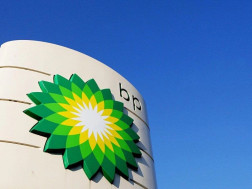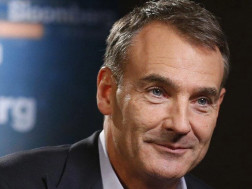Royal Dutch Shell made record first-quarter profits of more than $9.6bn (£7.6bn) in the first three months of this year, even as oil and gas prices tumbled from last year’s highs.
The better-than-expected adjusted earnings topped its previous first-quarter profit record set last year at $9.1bn for the same period, and were well above the $7.96bn predicted by industry analysts.
Europe’s biggest oil and gas company will now offer shareholders $4bn in share buybacks over the next three months.
The Anglo-Dutch energy company said profits rose thanks to its trading teams which were able to mitigate against the falling market price for oil and gas.
Global oil prices averaged $81.7 a barrel in the first quarter of this year, according to Shell, down from $102.2 a barrel in the same period a year earlier, when Russia’s invasion of Ukraine ignited a surge in oil and gas markets.
Shell’s new chief executive, Wael Sawan, said the company had delivered “strong results and robust operational performance, against a backdrop of ongoing volatility”.
The company reported a record annual profit of $40bn for 2022 after posting better than expected profits in the final quarter of last year. The full-year profits were more than double what it reported in 2021 due to rocketing oil and gas market prices last year, leading to calls for a windfall tax on the earnings.
Tommy Vickerstaff, a campaigner at 350.org, which opposes new oil and gas projects, said governments should impose tougher taxes on oil companies’ “obscenely high” profits.
“The UK government has consistently failed to adequately tax these profits despite everyone’s bills going up and millions more people being pushed into fuel poverty,” said Vickerstaff.
Earlier this week, BP reported a profit of $4.96bn for the first quarter, down from $6.2bn in the same quarter last year, but well above the $4.3bn expected by analysts.
A survey commissioned by Christian Aid, an international development charity, found that nearly four in five UK adults agreed that it is wrong for oil and gas companies to make record profits without taking responsibility for their role in causing the climate crisis. More than six in 10 of those surveyed believe that the government should tax fossil fuel profits to help pay compensation to communities facing the impacts of the climate crisis.
Patrick Watt, the chief executive of Christian Aid, said: “Record profits by fossil fuel companies like Shell and BP should be a wake-up call, and spur real accountability for the damage they are causing. That’s not just Christian Aid’s view, it’s the view of an overwhelming majority of the British public. The UK government should be ensuring that major polluters meet their moral responsibility to repair the damage they have caused to the climate,” Guardian reports.
















